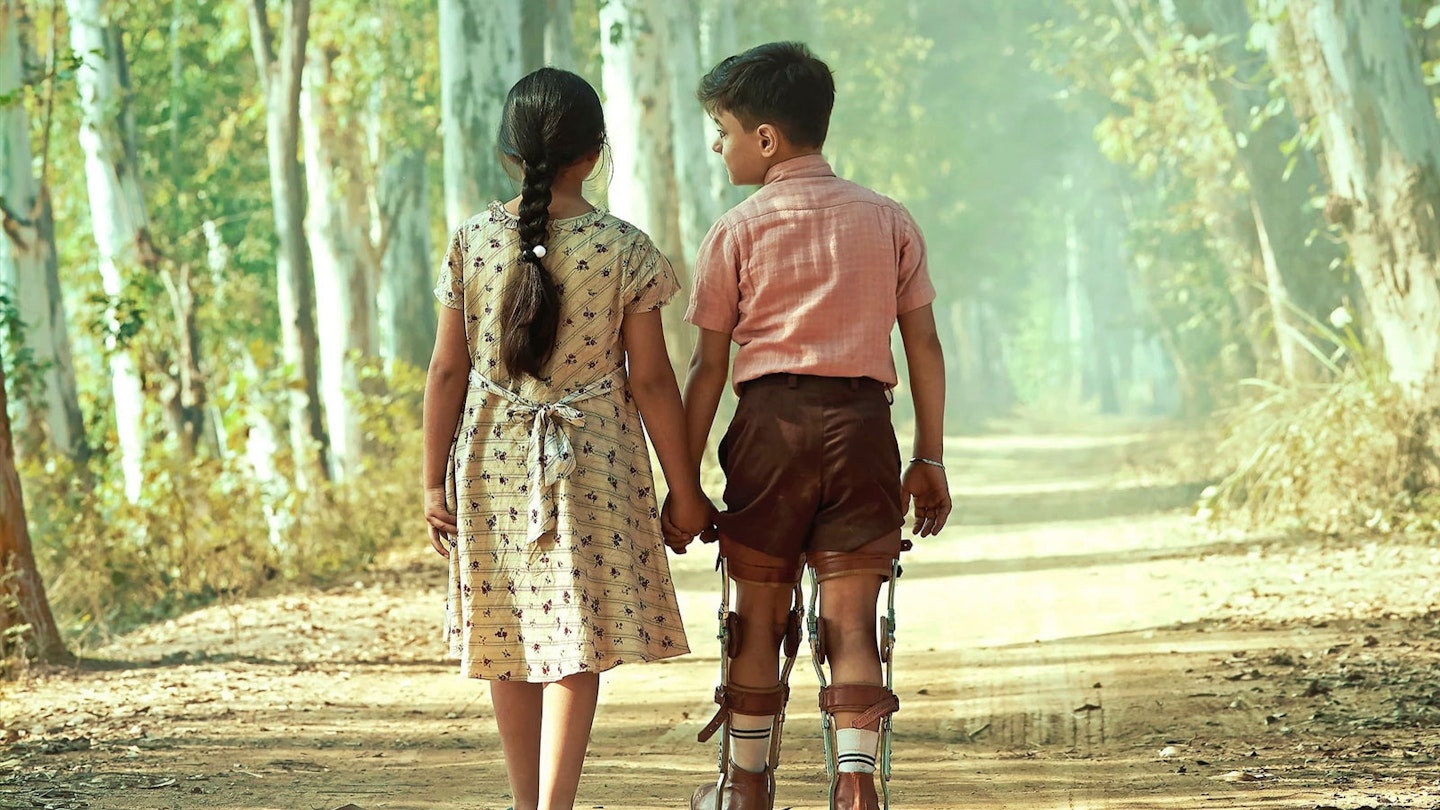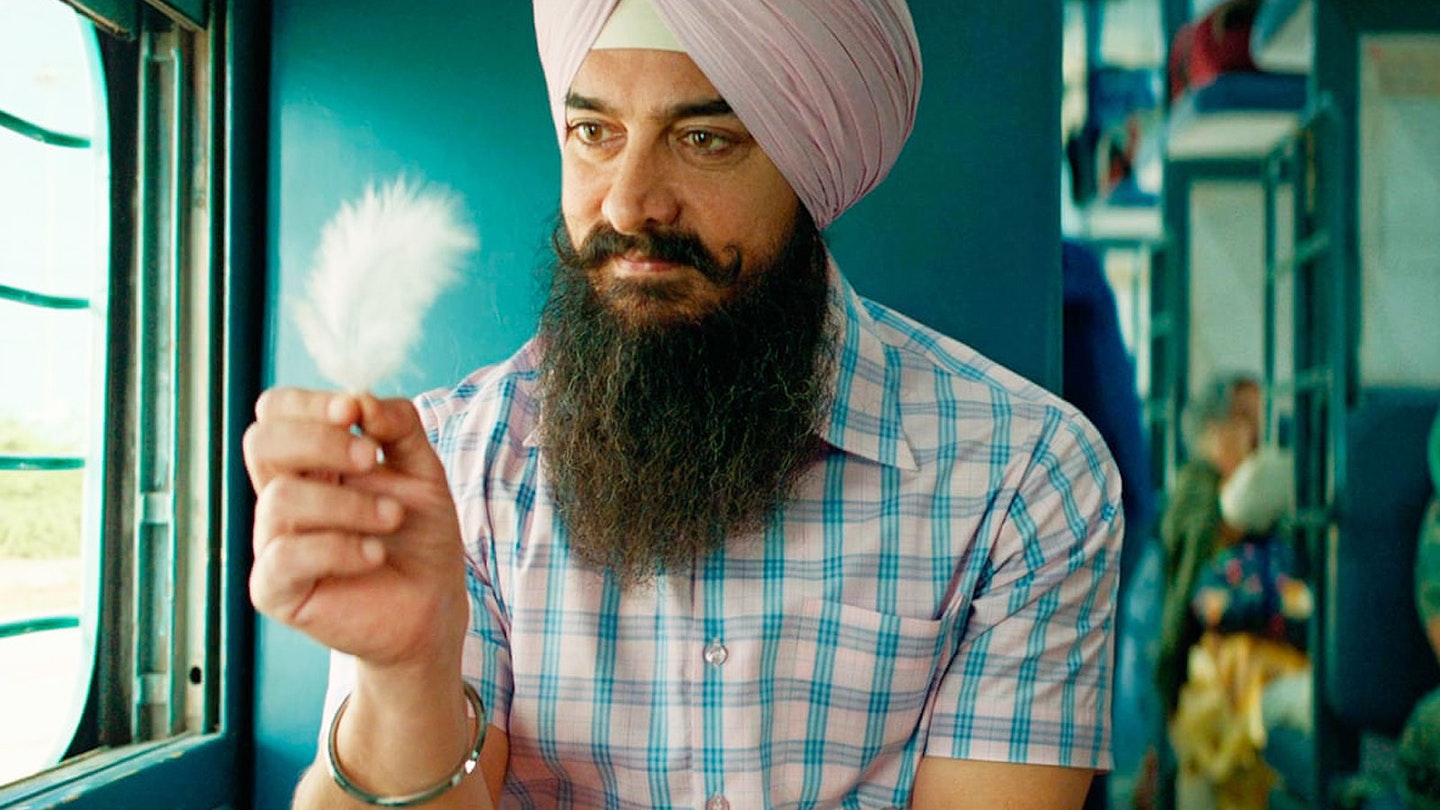The first words in Laal Singh Chaddha, Advait Chandan’s adaptation of Forrest Gump, are immediately familiar. “My mamma used to say, ‘Life is just like a golgappa,’” says hero Laal (Aamir Khan), referring to the savoury Indian street snack. “Your tummy might feel full, but your heart always craves more.” While the analogy might make more sense than the 1994 original’s life-is-like-a-box-of-chocolates proposition (of course you know what you’re gonna get — there’s a guide), it also confirms how heavily Chandan’s film leans into Robert Zemeckis’ Oscar-winner. If you have a passing knowledge of Gump, Laal Singh Chaddha is often a strange experience, in places a Gus Van Sant-esque facsimile rather than a remake. But it is not without its charms. It is warmly played, sincerely made and adds the odd, interesting tweak to the template.

With Gump screenwriter Eric Roth acknowledged prominently in the credits, Laal Singh Chaddha cleaves very closely to the original’s premise: a check-shirted simpleton (Khan), guided by the homespun wisdom of his doting single mother (Mona Singh), moves blithely through big events in his country’s recent history, while pining after his childhood love (Kareena Kapoor). But director Chandan and screenwriter Atul Kulkarni don’t just stick to the plot like glue — they also import classic dialogue (“Peas and carrots”, “That’s all I have to say about that”); motifs (the white feather); set-pieces (jettisoning his leg-braces while being chased by bullies); and images wholesale. When Laal and Rupa sit on a tree watching the sun set, it looks like they’ve been photoshopped directly into Zemeckis’ film.
"As Laal, Khan engages in more broad mugging than Tom Hanks ever did, but he is a likeable, gentle presence"
Starting in the ’70s rather than the ’50s, the story boasts some successful changes. Rather than a park bench, Laal spins his story in a crowded train carriage, the captive audience making more sense and generating more intensity than Zemeckis’ passing strangers. Meanwhile, the second half finds some new licks of its own. Post war, Laal starts a very different kind of business to a shrimp company, and his relationship with the Lieutenant Dan figure, Manav Vij’s Mohammed Baaji, is given a fresh, interesting dynamic. The second storyline, involving Rupa seeking fame and fortune by becoming a gangster’s moll, gives the character a little more agency, although her ‘mystery’ terminal illness in the last reel feels even more superfluous stripped of the ’80s AIDS context.
As ever with Indian cinema, there are musical interludes — but no song-and-dance numbers, just syrupy songs about fate and destiny played over montages. Save a charming vignette in which young Laal (Ahmad Ibn Umar) teaches the actual Shah Rukh Khan his signature dance move, Chandan’s film doesn’t indulge too heavily in the protagonist-as-a-participant-in-the-tide-of-history gambit. The current of landmark events flows around him (often shown on TV) rather than through him. There are some tougher moments — during rioting after Indira Gandhi’s assassination, Laal’s mother chops off his hair to disguise his Sikh upbringing — but Laal Singh Chaddha trades in a similar level of sentiment to its predecessor. As Laal, Khan engages in more broad mugging than Tom Hanks ever did, but he is a likeable, gentle presence and makes for a winning centre. Even so, despite the shifts in cultural context, he can’t make you escape the overwhelming feeling of déjà vu.
